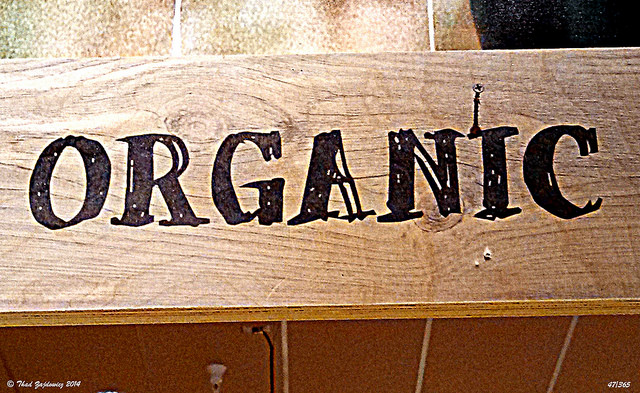To say that organic products have mainstreamed would be a mild understatement. When The Hartman Group first started studying consumer motivations for purchase and use of organics in the 1990s, it was largely a category driven by Core enthusiasts. Today, our Organic and Natural 2016 report finds that a full 82% of consumers say they at least occasionally use organics (up a full 9% from 2014).
Perhaps it was no surprise then, when Kroger CEO Rodney McMullen noted recently during an earnings call that just over 10% of Kroger’s overall sales are coming from the organic and natural category. Organics are certainly part of a majority of shoppers’ baskets. And yet, at the same time, while organics are still deeply valued within food culture, the mainstreaming of the category and its overall association with purity has increasingly come under threat.
The reasons for this dilution in meaning are diverse and along with its sister segment of natural products, we can say that consumer thinking is complex these days when it comes to definitions in these distinctions. Organic has a range of meanings related to three key ideas: first and foremost is “grown naturally” (particularly without farm-level chemicals), then “made simply” and finally, “made responsibly.”
“Natural” foods, on the other hand, are becoming more complicated. Consumers today idealize food that is as close to its “natural” form as possible. They believe that this food is better – physically, morally, environmentally. However, the language of organic and natural foods has become more complex to navigate as more quality tiers have emerged. This complexity is challenging the status of well-established quality cues and bolstering skepticism.
Overall, consumers are turning more to common sense and trust to help them make decisions. When it comes to organics the crispness of meanings (grown naturally, made simply, made responsibly) is being compromised by the ubiquity of organic products, including their presence in “less healthy” categories.
To help combat these perceptions, marketers should remember that products that have been certified organic or bear an otherwise clean label play to the most significant trend in food retail today. In general, consumers believe that products that are more real, more fresh and less processed are usually better quality, healthier and even better tasting. This umbrella of fresh, real, and less- processed represents the big push behind food quality trends, and for many years has been manifested in distinctions like organic and more recently in areas like clean labels.
Marketers should steer clear of “natural” claims given consumer skepticism, since Americans increasingly perceive products with clearer, shorter labels as better for them. With regard to organics, consumers can typically imagine them being grown in the ground somewhere and that’s an indicator that such products will be better tasting, higher quality and are probably better for them from a health perspective.
When it comes down to shopping behavior, consumers make constant trade-offs in their organic and natural purchasing. Marketers should remember that:
- Consumers rarely have blanket rules about organic and natural consumption. They make trade-offs dependent on the category and occasion for which they are purchasing.
- There are recurrent themes in how consumers rationalize preferring organic. They tend to prefer organic in categories that are “close to the farm,” that they eat frequently or in large quantities, that have strong healthful aspiration and that they purchase for children (and even pets).
When it comes to organic and associations with purity, consumers are less likely to prioritize organic in categories that are highly processed, that are indulgent, where convenience or price are bigger priorities and that feature diverse quality cues besides organic. In some cases, consumers are losing some faith in the purity of organic and are finding alternatives. This is due to the growth in organic junk food, more industrial farms and manufacturers switching to organic and more focused quality cues appearing on pack that cover their primary concerns. As such, organic’s future ability to differentiate itself and justify its price premium should not be taken as given in all categories.
Of great interest, consumers appreciate mainstream retailers democratizing organic and natural, and this is demonstrated in their shopping behaviors. Consumers give grocery retailers high marks overall for making organic and natural products more affordable and accessible. Organic and natural brands from specialty retailers and national brands enjoy the highest levels of trust. Mainstream grocery private label is trusted, just not as much as brands regarded as specialists.
Organics are not just something that is being pursued by the high income, high education consumer who has a lot of discretionary income. Whether private label or branded, there is a real need for a more palatable price point for consumers who want to bring organics into their homes.
As CEO of The Hartman Group, Demeritt drives the vision, strategy, operations and results-oriented culture for the company’s associates as The Hartman Group furthers its offerings of tactical thinking, consumer and market intelligence, cultural competency and innovative intellectual capital to a global marketplace.
__________________________________________________
If you enjoyed this article, join SmartBrief’s email list for more stories about the food and beverage industry. We offer 17 newsletters covering the industry from restaurants to food manufacturing.
